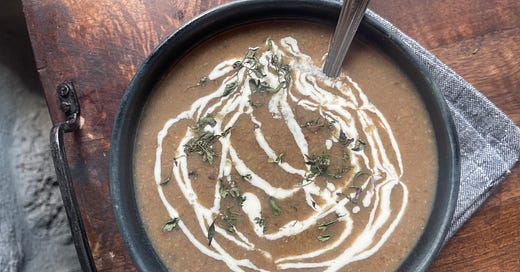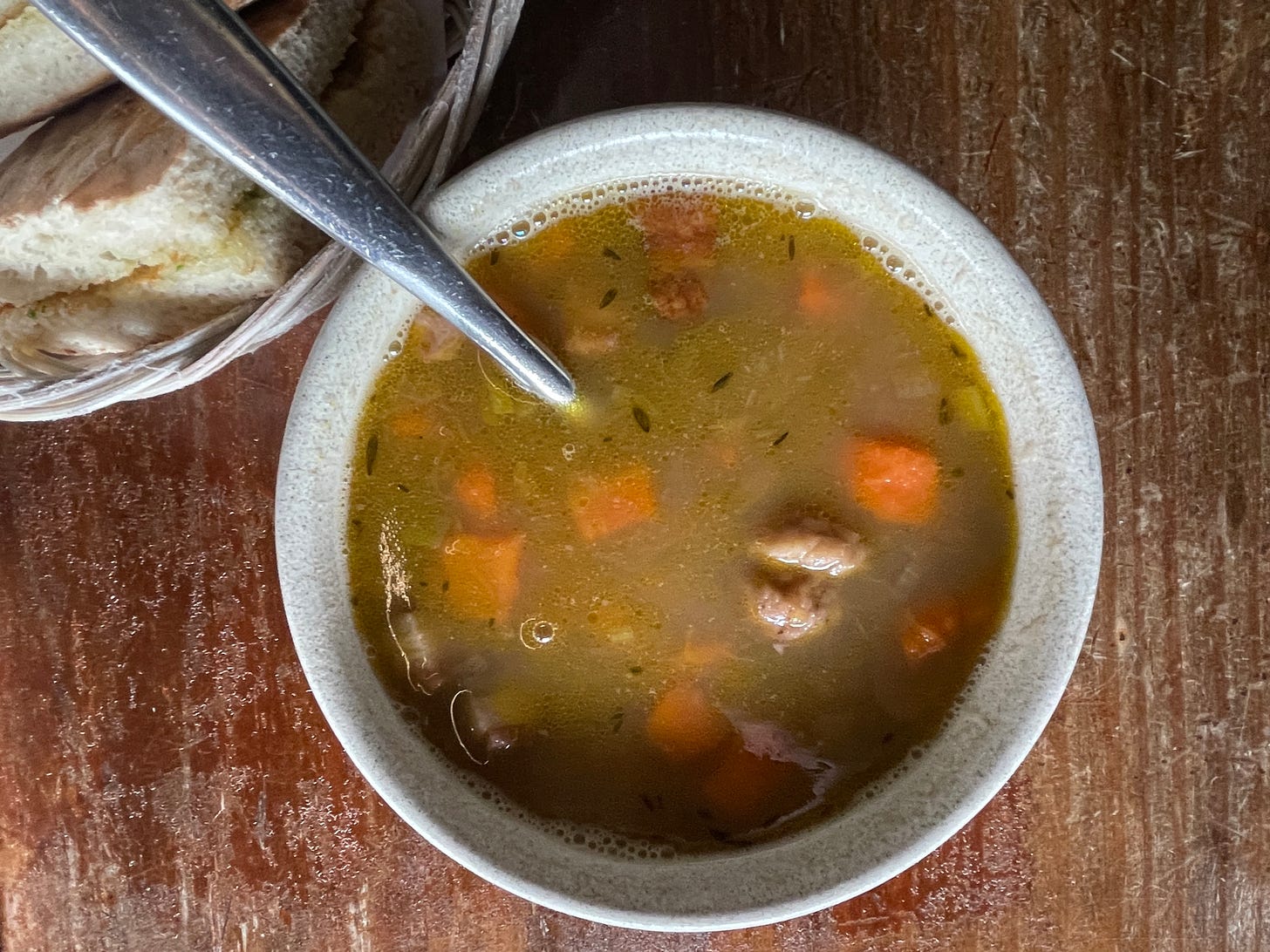Roasted Chestnut Soup in Madeira's Nun's Valley
with a weekend guide for the best places to visit on the island
Welcome to What’s Good Here, a weekly newsletter of recipes, guides, inspiration and expat news. Thank you for being here! This post is free, so please feel free to share it with the food and travel lovers in your life. What’s Good Here is a reader-supported endeavor. To support this publication and to gain access to all recipes, guides, giveaways and other perks, please consider becoming a subscriber. Thank you!
When my friend from Seattle and I planned a weekend meet-up in Europe, I suggested an unconventional choice: the Portuguese island of Madeira instead of the usual mainland destinations. I was so glad we opted for this lush Atlantic gem, just under a seven-hour flight from Newark thanks to new direct routes from the U.S. It seemed like the perfect destination for Thanksgiving, and I was more than willing to forego turkey and cranberry sauce for chestnuts, poncha, and Madeira’s dramatic, mountainous landscape reminiscent of Hawaii’s Big Island.
Our trip began in Funchal, the bustling capital of Madeira. I was struck by its size and vibrancy: its a city teeming with museums, lively markets, write-home-about restaurants, and plenty of great shopping. But as much as I enjoyed exploring Funchal, the highlight of the trip lay was the secluded beauty of Nun’s Valley (Curral das Freiras).
Nestled among towering peaks, Nun’s Valley is steeped in history. It’s said that nuns fled here in the 16th century to escape pirate raids along Madeira’s coast, seeking refuge in the valley’s natural fortification. For centuries, the villages remained relatively isolated, accessible only by steep, rugged paths carved into the mountains. The isolation fostered a deep sense of resourcefulness and resilience among the valley’s residents, who relied on each other to thrive. Today, modern roads make the journey far easier, but the spirit of solidarity remains palpable in this tight-knit community.
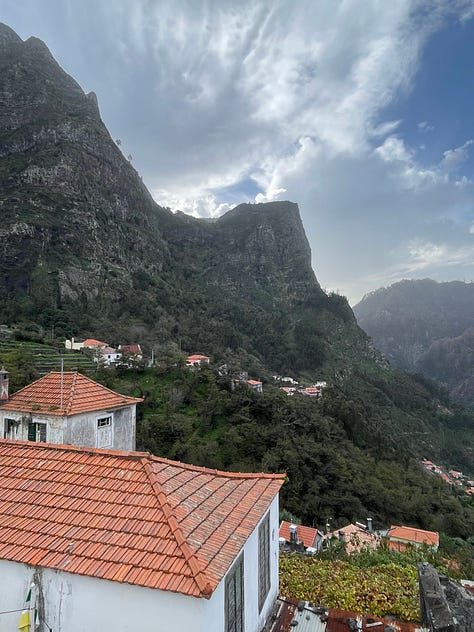
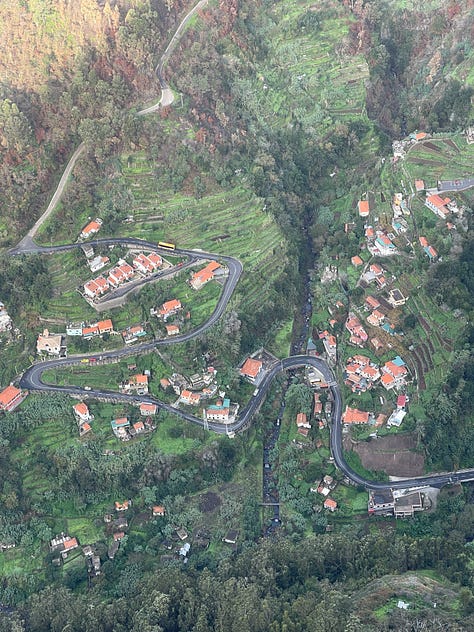
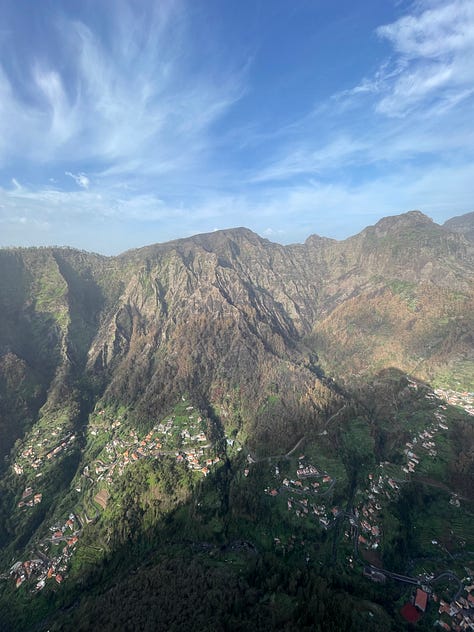
Chestnuts hold an important place in the valley’s history and culture. Once a dietary staple for the isolated villages, chestnuts are now celebrated every November during the valley’s annual Chestnut Festival. Walking through the village, there are chestnut-based delicacies everywhere—soups, breads, jams, pastries, and liqueurs. Sabores do Curral, a cozy restaurant in the heart of the village, serves a particularly delicious chestnut soup, which inspired me to create my own recipe that also includes roasted wild mushrooms. (Paid subscribers will find it included in the recipe section.)
Madeira’s culinary traditions extend far beyond chestnuts. One of the island’s most iconic drinks is poncha, an alcoholic punch-like beverage made with aguardente (a sugarcane spirit), honey, sugar, and lemon juice. It’s believed to have been influenced by the traditional drinks of sailors who docked in Madeira during their transatlantic voyages. Poncha is not just a drink but a symbol of conviviality on the island, often shared in small bars and taverns known as tabernas. Drinking a little poncha is an essential part of experiencing Madeira, offering a taste of the island’s bright communal spirit.
The island’s vibrancy is also rooted in its history as a vital hub during the period of European overseas expansion. Madeira was a crucial stopover for ships traveling to and from the Americas, Africa, and India. This made it rich in culinary influences and a key player in the global spice trade. Spices like cinnamon, cloves, and nutmeg made their way to Madeira, leaving a lasting impact on its cuisine which is similarities to mainland Portuguese dishes but is also uniquely Madeiran.
Today, these spices are woven into traditional dishes and desserts, infusing the island’s culinary offerings with warmth and complexity. Iconic dishes such as bolo de mel (a molasses and spice cake), espada com banana (scabbardfish with banana), and milho frito (fried cornmeal cubes) highlight Madeira's distinctive flavor profile. The bustling markets of Funchal, like the Mercado dos Lavradores, showcase this legacy with their aromatic spice stalls, a sensory feast for its mix of locals and visitors.
The tour we took through Nun’s Valley also included a stop in Câmara de Lobos, a colorful fishing village famous for its connection to Winston Churchill, who once painted its scenic harbor. Beyond its history, the village offers a glimpse of Madeiran life, from the men playing cards along the quay to its annual Sustainability Festival.
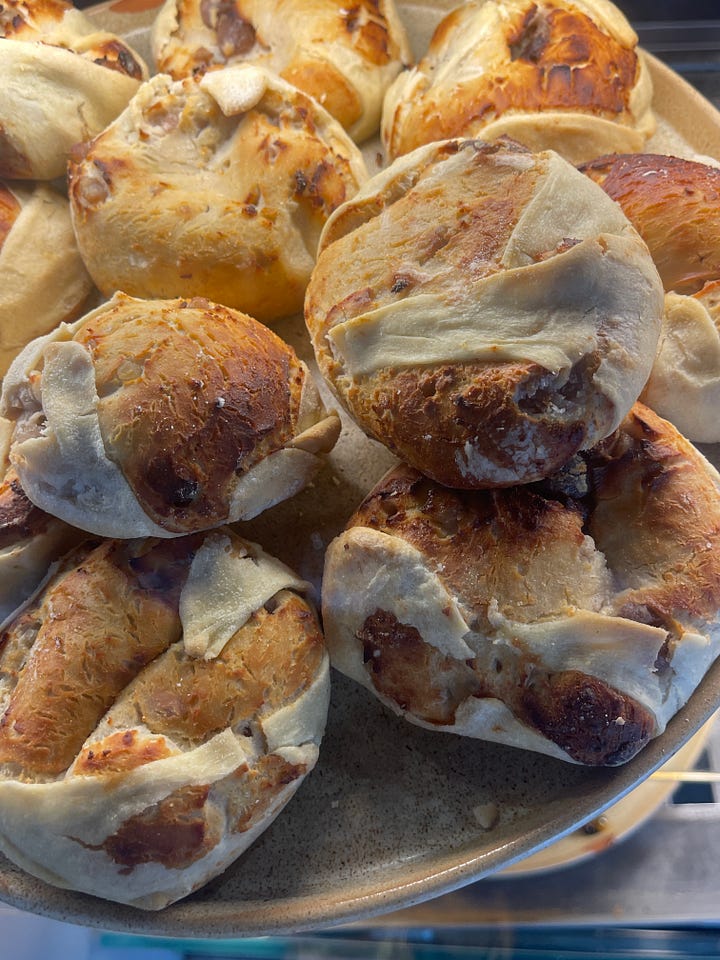
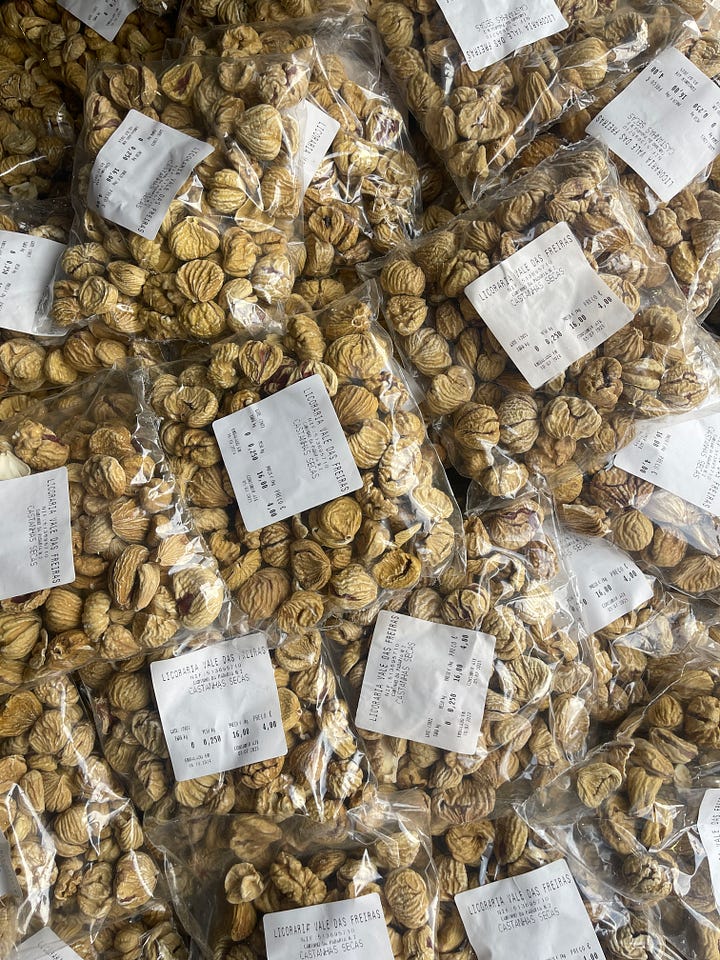
Though I rarely opt for organized tours, the rocky terrain and our short trip convinced us to book one—and I’m so glad we did. Our knowledgable guide expertly led us through the island’s stunning landscapes, weaving in stories of Madeira’s history that added depth to the experience.
What stayed with me most from our visit to Nun’s Valley wasn’t just the breathtaking views or the earthy chestnut dishes but the inspiring sense of community. In a place that was once so isolated, people learned to depend on one another to thrive. That spirit of cooperation and resilience is woven into the fabric of Madeira, making it a destination that’s as enriching as it is beautiful.
The weekend guide for paid includes all the highlights of our weekend in Madeira, from Funchal’s urban charm to the allure of Nun’s Valley and Câmara de Lobos. Paid subscribers also get access to my roasted chestnut soup recipe—a little taste of Madeira to savor at home.
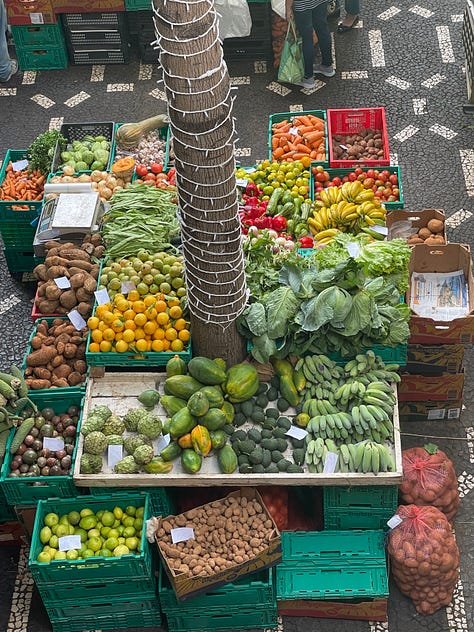
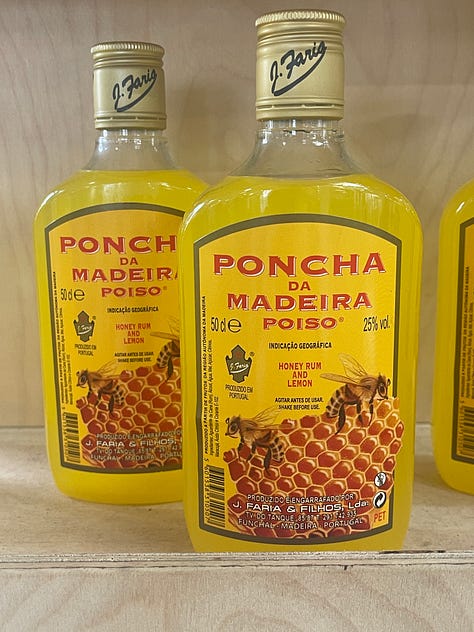
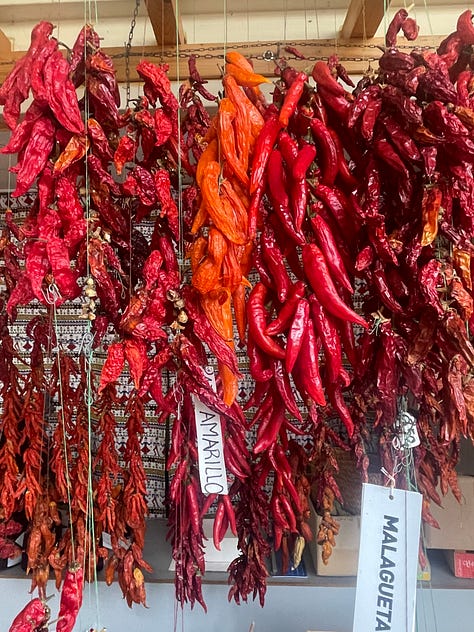
News & Favorites
Elysian Kitchens: Published on October 15th by W.W. Norton, it’s available online as well as in many independent bookstores. It’s appeared on The Splendid Table, Saveur and many other places. If you’ve picked up a copy and enjoyed it, I’d be so grateful if you’d consider leaving a review—they truly help. There will be more news and behind-the-scenes stories about Elysian Kitchens in the coming months, along with an event series inspired by the book that kicks off in Minnesota in spring 2025, Ireland in July, and Italy and Portugal in October. More info will be available at the end of January.
Eat Like a Monk: A Plant-Based Guide to Conscious Cooking and Mindful Eating: I had a book last year by Simon & Schuster comprised of plant-based recipes primarily inspired by Buddhist monasteries throughout Asia. More on Eat Like a Monk soon, including some of my favorite recipes from the book (they’re really bright and vibrant)!
London Writers Salon: On January 14th I joined a conversation with the London Writers' Salon, a vibrant community dedicated to helping writers succeed through daily writing sessions, expert interviews, and masterclasses. In this session, we discussed insights from my experiences in the culinary world and discussed the journey of writing and publishing Elysian Kitchens along with a deep dive into how to navigate a career in the culinary world. Paid subscribers to LWS have access to the conversation.
Bethlehem by Fadi Kattan: Chef Fadi Kattan’s gorgeous cookbook, Bethlehem, is a stunning celebration of Palestinian cuisine that combines heartfelt storytelling with beautifully curated recipes. Chef Kattan’s ability to bring the rich flavors and culinary traditions of his homeland to life is truly inspiring. If you find yourself in Toronto or London, you can also visit his restaurants Louf in Toronto and Akub in London, where he shares his passion for Palestinian food. I can’t wait to visit his London restaurant at the end of January and experience his cooking firsthand. If you’re a fan of thoughtful, flavorful cuisine with a deep sense of place, Bethlehem is a must-read!
When you have a solid upbringing and a strong sense of place, that sustains you. My sense of home never leaves me.
-Lyle Lovett
My newsletter is reader-supported.
Free subscribers get limited access to the weekly newsletter and two weeks worth of archives.
Paid subscribers get complete access to all of the content in my newsletters and my entire archives. You’ll also get all of the recipes, guides, interviews, cooking tips, essays and more, plus the ability to comment and participate in discussions.
If you’d like this week’s recipe along with my Madeira guide, consider upgrading to paid. A paid subscription also gets you access to my weekly expat guide where I share tips, news and information about how to become a happy expat like me!
In 2025, I will be offering my standard hygge workshops along with new workshops on cookbook writing, becoming an expat and more. Paid subscribers will receive a 50% discount on their first course. More info coming soon.
Newsletters will arrive right in your Inbox or you can read them through the app.

